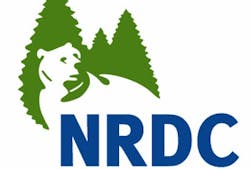NRDC sues federal housing regulators for blocking clean energy projects for homeowners
Federal housing regulators must stop obstructing programs that make energy efficiency upgrades and renewable energy projects affordable for American homeowners, according to a lawsuit filed on Oct. 6 by the Natural Resources Defense Council.
“Federal housing regulators are standing in the way of programs that make clean energy projects affordable for homeowners and lower electricity bills,” said Katherine Kennedy, Energy Counsel at NRDC. “It defies common sense that the federal government is blocking programs that could create jobs, jumpstart our economy, put money in homeowners’ pockets, and fight climate change at the same time. Instead of shutting them down, the federal government should help these programs grow.”
NRDC filed the lawsuit in federal district court in the Southern District of New York against the Federal Housing Finance Agency, which regulates government sponsored mortgage buyers Fannie Mae and Freddie Mac, and the Office of the Comptroller of the Currency, which regulates national banks. The agencies have halted clean energy financing programs—called Property Assessed Clean Energy (PACE) programs— that are already off the ground in California, Colorado and New York, and have been adopted in 20 other states and the District of Columbia.
With PACE programs, the upfront costs of property owners’ clean energy projects are financed by municipalities. Homeowners then pay off the projects as an incremental charge on their property taxes over an extended period of up to 20 years – with the savings on their energy bills often exceeding the costs of the payments from the start. The program is entirely voluntary and easily transferable to the next property owner if the current resident decides to move. It can be used to fund anything from small-scale renewable energy systems, like solar panels, to energy efficiency upgrades, like better windows, insulation, or heating and cooling systems.
The Obama Administration has supported PACE programs in the past, with the Department of Energy awarding more than $150 million in federal stimulus funds to support them last year. But federal housing regulators have since halted the programs nationwide through a backdoor administrative action. In July, FHFA and OCC issued statements to Fannie Mae, Freddie Mac and the national banks that effectively halted PACE efficiency programs nationwide. The result has been a freeze on nearly all existing and planned PACE programs, leaving millions of dollars in federal stimulus funds in question, and thousands of jobs implementing the projects in limbo, in addition to putting climate change goals and economic development plans across the country on hold.
NRDC is suing the agencies for halting the programs without justification, and for doing so without following the proper protocol as required by law. This includes failing to conduct a review of the environmental impacts and to provide the public an opportunity to comment before taking this action.
“Financing is a key barrier for property owners who are interested in lowering their bills with clean energy improvements,” said Greg Hale, Senior Finance Specialist at NRDC’s Center for Market Innovation. “PACE programs provide a unique solution – allowing them to overcome this roadblock without relying on public dollars, and with virtually no risk to existing lenders. In fact, with PACE programs, clean energy improvements can reduce the risk of mortgage default by lowering energy bills and increasing property values.”
In California, Attorney General Jerry Brown, Sonoma County, the City of Palm Desert and the Sierra Club have filed similar federal lawsuits. U.S. Senator Barbara Boxer and U.S. Representative Mike Thompson have also introduced federal legislation that would require the federal government to allow states and localities to move forward with PACE programs.
New York State is one of the 23 states that have enacted PACE legislation, and the state received $40 million of the DOE’s stimulus funds for PACE energy efficiency programs. In New York, at least 24 communities and three counties have implemented or are considering PACE programs, including New York City, Babylon, Bedford, Binghamton, Ithaca, Nassau County, Albany County and Tompkins County.
The full complaint can be found online here: http://docs.nrdc.org/energy/files/ene_10100601a.pdf.
